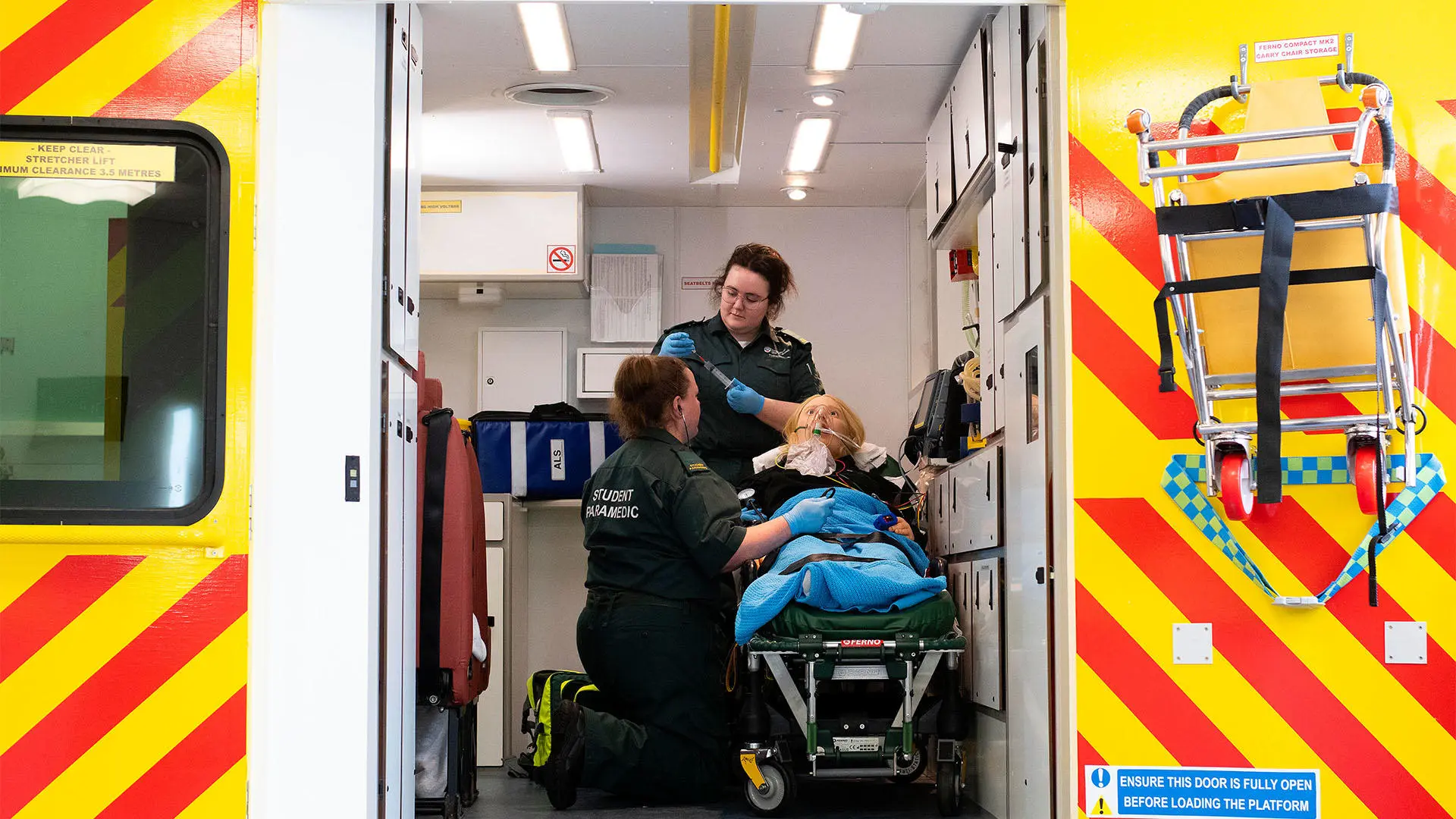Interested in a career as a paramedic? Our step-by-step guide will tell you everything you need to know about life as a paramedic and what is required to have a successful life and career.
What is a paramedic?
Paramedics are often first on the scene for both medical emergencies and non-emergencies. They work in ambulances equipped with lots of medical equipment. Work environments can involve anything from responding to a small car crash in the countryside to someone having a serious heart attack in the middle of a busy city.
Paramedics have the medical expertise required to quickly diagnose and treat patients. It's essential for paramedics to know what they're dealing with. Once diagnosis is complete, paramedics either organise home care or transport patients to the hospital.
The majority of patients paramedics work with remain at home. Paramedics are in charge of organising home care and ensuring that the patients and their family remain calm and informed in light of the circumstances.
Intense medical situations require someone with a calm and professional composure. You will need to be able to navigate high-pressure environments to both diagnose and treat patients correctly. You will also require a good deal of care and empathy, keeping both patients and their loved ones calm in often stressful situations.
How to become a paramedic
To become a paramedic, you will need to be registered with the Health Care Professions Council (HCPC). The HCPC set regulations and standards for all healthcare professionals on their register – this means that anyone working as a paramedic is held to these professional standards.
To become a registered paramedic with the HCPC, you have a few different options:
- You can complete an approved full-time BSc Paramedic Science Degree. The course takes around 3 years to complete, and once finished you can register with Health and Care Professions Council (HCPC). This allows you to apply for paramedic job vacancies.
- If you don't meet entry requirements, you can complete our Health & Social Care (with Foundation Year) course. This provides the perfect pathway on to our BSc Paramedic Science Degree to gain your registration.
- You can complete a Degree Apprenticeship in Paramedic Science. This involves studying part-time, while you work to gain your qualification.
- If you’re currently a nurse, midwife, or allied health professional in England, you can take an MSc pre-registration course (level 7), to gain registration as a paramedic.
Entry requirements
Typically, most paramedic courses and degree apprenticeships require:
- Two or three A levels, including a science, along with five GCSEs (grades 9-4/A-C), including English language, maths and science.
Or equivalent qualifications:
- A BTEC, HND or HNC, including science
- A relevant NVQ
- A science or health-based access course
- Equivalent Scottish or Irish qualifications.
As entry requirements can vary, it’s best to check with your chosen university or degree apprenticeship provider.
As you’ll be working with vulnerable individuals, paramedics have to complete a Disclosure and Barring Service (DBS) check. Some courses will also require a general health screening. This is to ensure that you are well enough to work in high-pressure environments.
Why become a paramedic?
Being a paramedic is a rewarding job – each day will present new challenges, new people, and new locations.
You will work alongside other emergency services, such as the police service and the fire and rescue service. You will meet and treat many different patients every day, as well as talk with any friends or family on the scene.
Saving lives is no small feat, and paramedics do this on a day-to-day basis. They occupy a very important role in both our National Health Service (NHS) and private healthcare sector – responding to emergencies, organising care at home and getting patients to the hospital to receive life-saving treatment and care.

